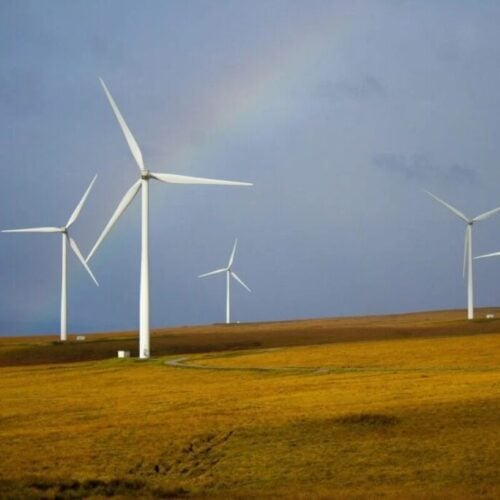UK Prime Minister Boris Johnson has announced £350 million worth of funding to help decarbonise industry, including dedicated funding for green hydrogen.
In a speech at the first meeting of the UK jet zero council this morning, Johnson unveiled an investment package for the heavy industry, construction, space and transport sectors.
It will be used to help develop new technologies that will make it easier for companies to switch to more energy-efficient means of production, such as the use of hydrogen networks. Additionally, the investment will help companies use data more effectively and support the creation of green jobs.
Of the £350 million, £139 million is being designated for supporting a transition from natural gas to clean hydrogen power, along with scaling up carbon capture and storage (CCS) technology. According to the government, CCS could stop over 90% of emissions from industrial plants from being released into the air, instead storing it as carbon underground.
Johnson said that while “great strides towards our net zero target” have been made, it is more important than ever to “keep up the pace of change to fuel a green, sustainable recovery” as the UK starts to rebuild from the COVID-19 pandemic.
“The UK now has a huge opportunity to cement its place at the vanguard of green innovation, setting an example worldwide while growing the economy and creating new jobs.”
The investment comes after the Committee on Climate Changes 2020 Progress Report argued that for industry, electricity and hydrogen production and CCS should all be considered as pathways for decarbonisation, and a funding mechanism established for the chosen technologies before the end of 2020.
CCS has already received support from the government and industry, with talk of the importance of industrial hubs with CCS raised a number of times. In July 2019, the government announced £170 million for deploying both CCS and hydrogen networks in industrial clusters.
In March, the Chancellor announced a CCS Infrastructure Fund within his Budget, allocating at least £800 million to the technology which will be used to develop at least two CCS industrial clusters.
The first of such, the Zero Carbon Humber project is getting underway, with a consortium of eleven energy and industry developing the decarbonised industrial cluster that is set to be up and running by 2040.
But the UK’s nascent CCS industry has endured a difficult relationship with the government in the past. Despite being highlighted as a pivotal technology for decarbonisation, in 2015 then-chancellor George Osborne pulled the plug on a pioneering £1 billion competition which was designed to kickstart the industry. Preferred bidders for the fund – projects in Peterhead, Aberdeenshire and the White Rose project in Yorkshire – had already been selected two years prior, and the abrupt decision to cancel, allegedly at short notice, angered stakeholders such as SSE, Shell and Drax.
Responding to the PM’s announcement, Energy UK chief executive, Emma Pinchbeck said today’s announcement was welcome. She pointed to research from the trade association that highlighted the role of both hydrogen and CCUS, finding that investment could create jobs and give the UK a “a global “early mover” advantage”.
“Hydrogen and CCUS are a part of the bigger Green Recovery,” Pinchbeck continued. “If Government invests in low carbon energy technologies and businesses, we are confident that it will massively benefit the economy, environment and society.”
Along with the investment for hydrogen and CCS, today’s announcement includes a further £10 million for R&D in the automotive sector, to help develop more efficient electric motors and more powerful batteries.
This follows from the news in June that £12 million worth of funding for “ground-breaking research” into zero emissions transport, including electric vehicle (EV) charging from the government.
Later in June, a further £73.5 million in grants was announced for the automotive sector, to help develop green transport technologies like EVs and safeguard jobs. Business and Energy Secretary, Alok Sharma, added: “This funding will reduce emissions, create green collar jobs and fuel a strong, clean economic recovery – all essential to achieving net zero emissions by 2050.”






